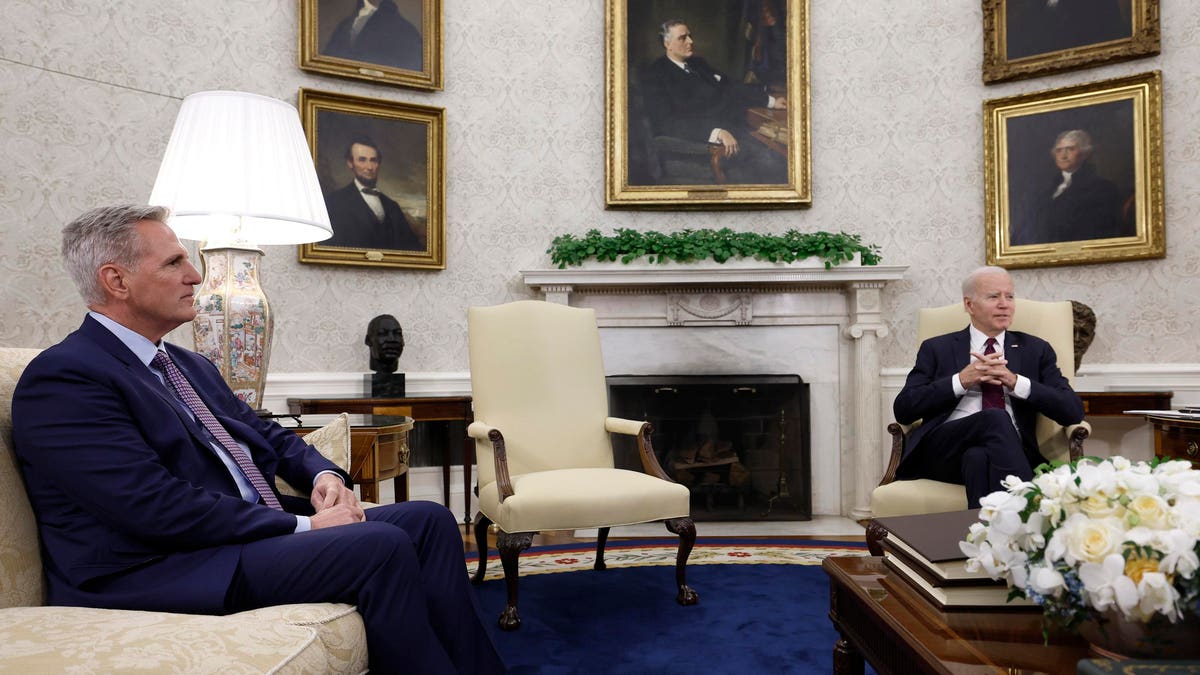The likelihood of a U.S. debt default is higher than ever. Deutsche Bank estimates a 2% chance while Moody’s estimates 10%. While it’s absurd to come up with precise probabilities for an insanely unpredictable outcome, anything north of zero is a sign we’re headed for a rocky ride.
If default occurs, the outcome will be disastrous. The only thing we know for sure about great cataclysmic financial events is that they always have unintended, unforeseen consequences that blindside the economy in the most surprising ways. Regardless of what we can’t see yet, we can see enough to know it won’t be pretty.
In the face of such possible consequences, what’s an investor to do? The temptation, of course, is to sell everything and wait this out. But that ignores the data on market timing around such big economic milestones—data that show it’s unlikely to work. First, two impossible decisions must be made: when to get out of the market, and when to get back in—both riddled with the adverse effects of tax consequences and frictional trading costs. Both moves are, by definition, made without rational basis—given that no one can predict the short-term direction of markets. The market is not a local subway ride, where you can easily get on and off at every stop. It’s more like the express train from 59th to 86th where you see your stop zoom by. And the market is often up 10% before it looks “safe” to wade back in—meaning it’s probably just headed for another dip. You can see the problem.
Who, for example, would have foreseen that the market would have doubled from its bottom in an instant during the absolute depths of the pandemic? As the old adage goes, the market exists to humiliate the maximum number of people the maximum number of times. In other words, markets are counterintuitive and contrarian, not intuitive. The decision will always feel right but will most often be wrong. The greatest harm I’ve ever seen done to retirement nest eggs is from failed attempts to time the market.
To paraphrase Warren Buffett at the Berkshire Hathaway meeting a few weeks ago, the way to deal with political and macroeconomic events is to ignore them because no one can predict them. And admitting you can’t predict them is the first step to recovery. Why was Socrates the wisest man, according to the Oracle at Delphi? Because he knew that he knew nothing.
On the other hand it’s foolish to ignore investment principles that have passed the test of time, probability, and data. So here’s my list for dealing with the debt ceiling uncertainty in a way that’s based on what’s truly knowable:
- The Proper Asset Allocation is Crucial: Asset allocation should be tailored to investor needs, risk preferences and, most importantly, time horizons. History shows that while economic calamities cause major declines in markets, those declines are temporary and always lead to higher highs. But younger, working investors can bear greater time risk than older, retired ones. The proportion of equities must be carefully tailored to the investor.
- Treasury Bonds are Riskier than Ever: Except where clients have specifically asked otherwise, I’ve been tilted heavily toward investment grade corporate bonds which have outperformed good old Treasury Bonds over the past three years. I advocated this in a Forbes piece back in 2021 and I continue to believe that quality corporate credits are less risky than government bonds due to the current political thicket. (The WSJ ran an article on this strategy yesterday.)
- Cash on Hand: Obviously, anyone who depends largely on government benefits or salary should have an extra month or two of savings on hand to weather this difficult time.
- Buckle Up: The markets will likely need to plunge to force a debt ceiling compromise. Politicians will not panic until the market panics. No one can time the precise moment—but when it comes, it’s likely to be gut-wrenching.
- But Don’t Let the Panic Distract You from Taking Advantage: Though timing the exact ins and outs would be impossible, great pricing opportunities in certain securities always emerge during times of extreme panic. Every investor should have some cash or bonds on hand to convert to stocks in order to take advantage of the inevitable panicked pricing.
The next few weeks will be difficult to tolerate for even the most seasoned investor. Markets will start forcing political hands at some point, but the twists and turns will be full of false starts, rumors, and worse. A prepared investor is a successful one.
Read the full article here



